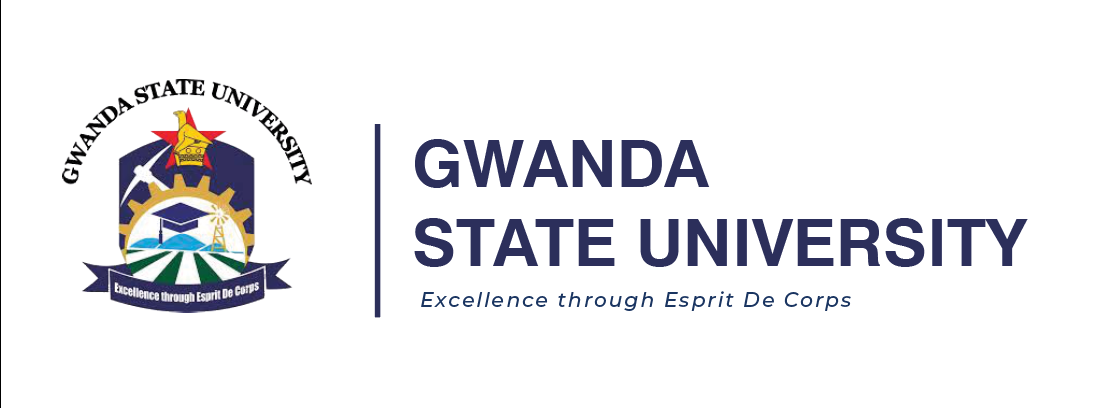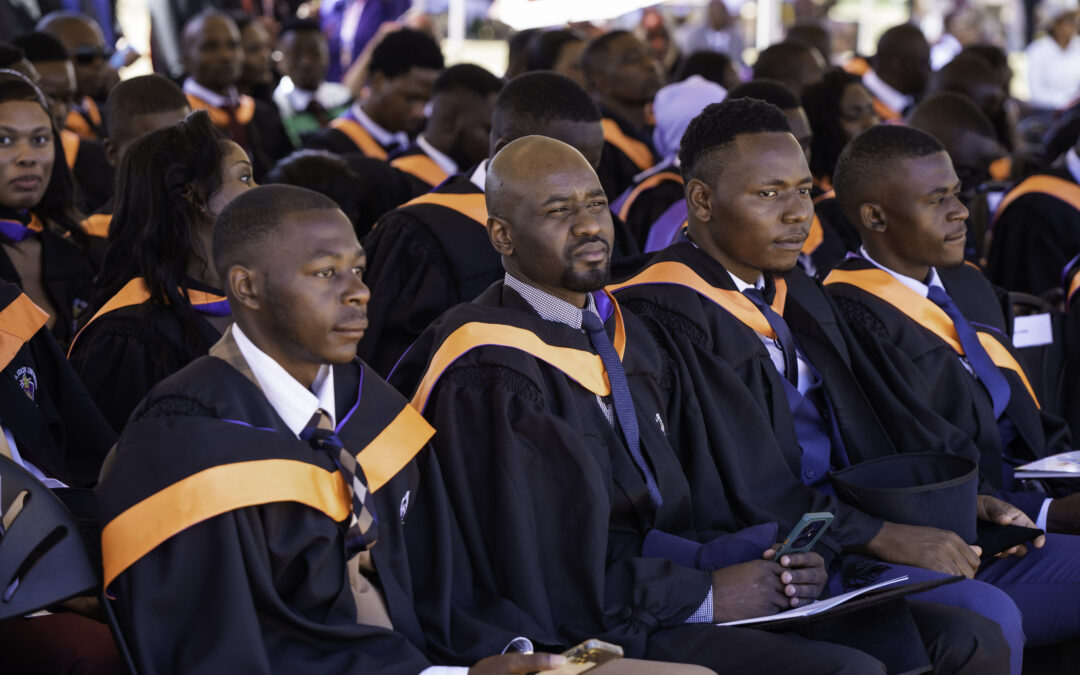PRESIDENT Mnangagwa, the Chancellor of all State Universities, yesterday capped 126
Gwanda State University graduates at the institution’s third graduation ceremony held at its
Epoch Mine campus in Insiza District, Matabeleland South. The graduates are from the
Faculty of Engineering and the Environment, and the Faculty of Natural Resources
Management and Agriculture. Of these, 31 were females, with 23 from the Faculty of
Engineering and the Environment. Eleven were from the Department of Mining Engineering
and Metallurgical Engineering respectively, while Geomatics and Surveying had one
graduate. There were eight female graduates from the Faculty of Natural Resources
Management and Agriculture, three from the Department of Animal Science and five from
Crop Science.
Notably, Senzelweyinkosi Ngwenya was the day’s poster girl, bagging 13 awards, including
the Chancellor’s Award for having the most innovative research project in the Department of
Animal Science, the Vice-Chancellor’s Award, and the University Book Prize, among others.
She also walked away with The Emmerson Dambudzo Mnangagwa Chancellor’s Award of
US$1 000 for being the overall best graduating female student. President Mnangagwa was
accompanied by the Minister of Higher and Tertiary Education, Innovation, Science and
Technology Development, Dr Frederick Shava, his permanent secretary, Professor Fanuel
Tagwira, and Matabeleland South Provincial Affairs and Devolution Minister, Dr Evelyn
Ndlovu. In her welcome speech, GSU Vice-Chancellor Professor Doreen Moyo underlined
the university’s efforts to improve its administrative and management structures and systems
by enacting and implementing robust policies and standard operating procedures across all
departments and sections of the university.
“The university’s efforts to achieve maximum administrative efficiency and effectiveness are
being undermined by high staff attrition, especially at senior academic and administrative
levels. This challenge is compounded by the fact that the institution is unable to attract and
retain senior management staff because it has no capacity to meet their contractual
obligations,” said Prof Moyo before revealing shocking staff turnover statistics. She said last
year, the university lost 23 staff members (11 academic and 12 non-academic) through
attrition, and this year, it has lost 31 staff members, of whom eight are from academics and
23 non-academic, also through attrition.
“In keeping with the guidance you gave us during the last graduation, the university
continues to increase access to higher education for the people of Zimbabwe through the
introduction of new and innovative programmes which speak to the nation’s aspiration to
industrialise and modernise the economy. “To that end, Your Excellency and Chancellor, the
University is set to operationalise the Faculty of Computational Sciences, which is scheduled
to offer nine programmes under two departments, namely, the Department of Applied
Mathematics and the Department of Computer Science and Information Systems,” she said.
She said the programmes that will kick-start the Faculty include the Bachelor of Science
Honours Degree in Applied Mathematics, Bachelor of Science Honours Degree in
Mathematics and Statistics, Bachelor of Science Honours Degree in Information Systems,
Bachelor of Science Honours Degree in Data Science and Artificial Intelligence, Bachelor of
Science Honours Degree in Computer Science, and Bachelor of Science Honours Degree in
Software Engineering, which will be rolled out next year.
I cannot emphasise enough that high-end skills and knowledge in Computational Sciences are
essential for Zimbabwe’s industrialisation and modernisation agenda under the current Fourth
Industrial Revolution, which has since been brought to its inflection point by the advent of
Artificial Intelligence (AI),” said Prof Moyo. She said the University, through the
Information Communication Technology Department, developed an integrated Student
Management System, paving the way for the digitisation of student services such as
admissions, registration, fees payment, and examination processing.
A Student Verification System that allows anyone from anywhere to verify if the student is
bona fide by scanning the Student Identification Card was also developed. She added that the
number of students under the work-for-fees programme increased from one last year to six
this year, and the university hopes to expand the programme next year to ensure that indigent
students are not left behind. Prof Moyo said that guided and driven by the Heritage-Based Education 5.0 philosophy, the
university is expanding its chicken and crop production projects to an industrial scale. This
endeavour will see the broiler project grow from the current 1 600 birds to 45 000 birds and
the layers project from 2 000 birds to 10 000 birds. “On the cropping side, I am pleased to
report that the university has now developed the capacity to delve into commercial crop
production following the allocation of 100 hectares of arable land to the institution by the
Ministry of Lands, Agriculture, Fisheries, Water and Rural Development.
With the generous assistance from our parent ministry, the university bought and installed a
movable centre pivot together with a water pump and the necessary piping. The pivot is
capable of irrigating 20 hectares at a time, and it draws water from the nearby Insiza River. In
the interim, the pivot is being powered by a generator while efforts are being made to connect
it to the ZESA grid through the Rural Electrification Agency,” said Prof Moyo.
Story by The Chronicle 23 November 2024


